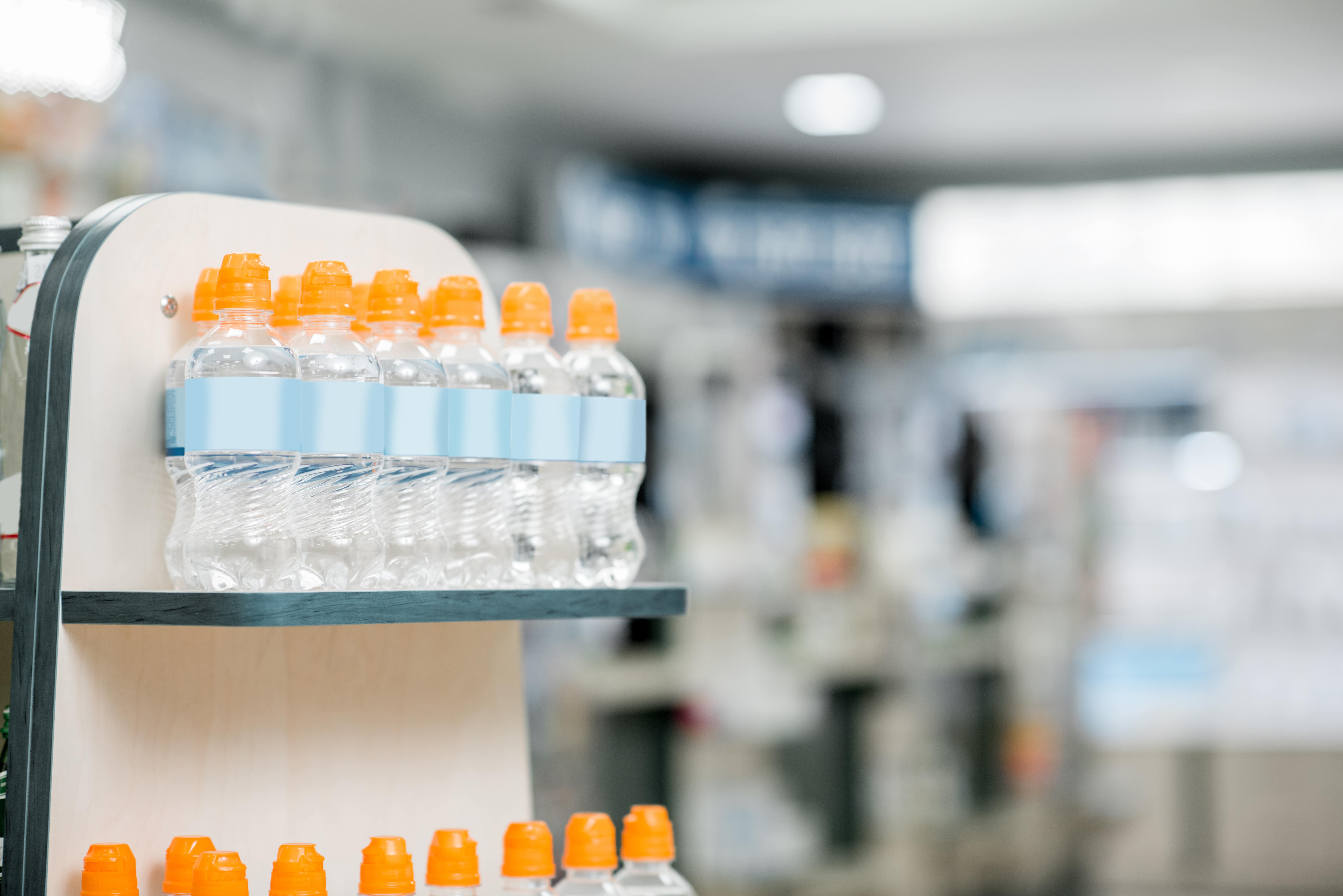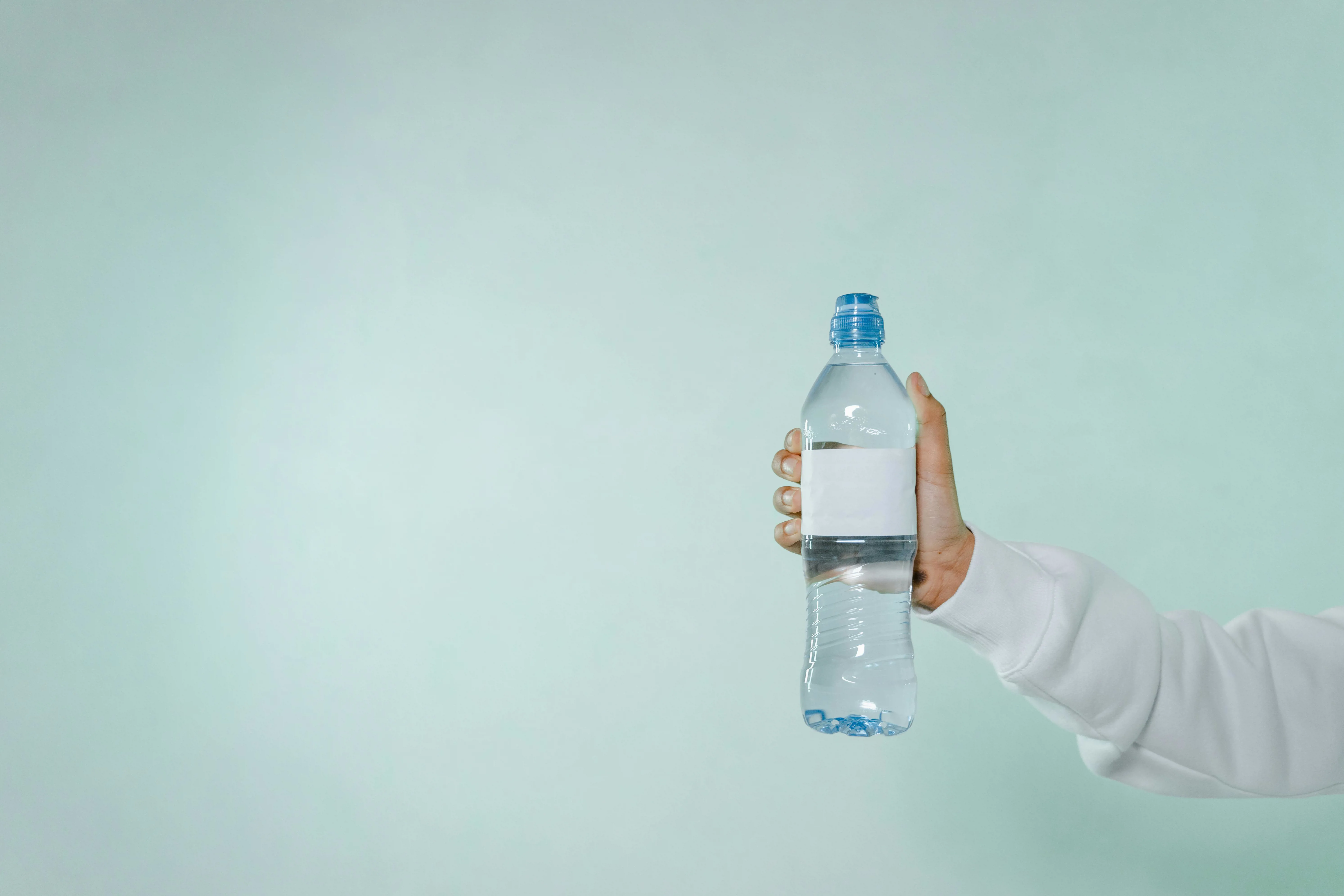From October 2027, every plastic bottle or aluminium you sell will come with a small refundable deposit. The Deposit Return Scheme is the UK’s new system to cut litter and raise recycling rates by rewarding people for returning empty drink containers.
When customers buy a drink, they’ll pay around 20p extra. They’ll get it back when they return the bottle or can through a reverse vending machine or manual collection point.
The scheme will run across England, Northern Ireland and likely Wales, with Scotland now aligning to the same timeline. The goal is ambitious: collect and recycle 90% of containers by 2030.
For retailers, hospitality venues and event organisers, this means changes to how you manage sales, storage and waste. You’ll need return systems, space for empties and clear communication with customers.
First Mile can help you get ready with expert recycling collections, data reporting and closed-loop recycling that keeps materials in use and your operations compliant.
What is the Deposit Return Scheme (DRS)?
The Deposit Return Scheme (DRS) is launching in 2027. It’s designed to reduce waste and increase beverage container recycling in the UK by giving people a financial reason to return bottles and cans.
Here’s how it works:
- When a customer buys a drink in a single-use plastic bottle or metal can (between 150 ml and 3 litres), they pay a small deposit, expected to be around 20p per container.
- They return the empty container to a reverse vending machine in the UK or a staffed collection point.
- The deposit is refunded instantly, and the container goes into a high-quality recycling stream.
The scheme will be overseen by a Deposit Management Organisation (DMO), a not-for-profit body that manages payments, returns and reporting. Businesses will work with the DMO to ensure compliance and receive handling fees for running return points.
The DRS supports wider government initiatives such as Extended Producer Responsibility (EPR), helping the UK move toward a circular economy. It’s part of a joined-up approach to meet recycling targets and reduce litter across towns, cities and venues.
DRS in practice — how it works for consumers
For customers, the Deposit Return Scheme across England, Wales and Northern Ireland will feel simple and familiar. The process is designed to be easy, fast and rewarding.
Here’s what it looks like in practice:
- Buy a drink – The customer purchases a drink in a single-use plastic bottle or metal can between 150 ml and 3 litres.
- Pay a deposit – Around 20p is added to the price, clearly shown on the label or shelf.
- Return the container – They drop the empty container into a reverse vending machine or hand it back at a staffed return point.
- Receive a refund – The deposit is automatically returned via cash, voucher or digital credit.
- Recycling happens – Containers are sorted, collected and recycled into new bottles and cans, supporting closed-loop recycling.
Customers will be guided by clear labelling, barcodes and signage, making it obvious which containers qualify. The visibility and ease of use are key to reaching the UK’s 90% return target by 2030.
For businesses, this system means handling more customer returns, but also showing visible commitment to sustainability — a win for both compliance and brand reputation.
UK timeline and policy overview
The rollout of the DRS in 2027 will take place in clear stages, giving businesses time to prepare for compliance and adjust their operations. The aim is to have regulations, systems and infrastructure fully in place before the official launch.
|
Year |
Milestone |
Business implication |
|
Spring 2025 |
Final regulations published and the Deposit Management Organisation appointed |
Businesses gain clarity on container scope, deposit values and reporting requirements |
|
2025–26 |
Infrastructure build phase, including reverse vending machine installation, logistics planning and staff training |
Retailers and venues should budget for equipment, storage space and return systems |
|
October 2027 |
UK-wide launch of the Deposit Return Scheme |
Deposits charged on eligible drinks containers, with refund and collection systems live |
Since the scheme will cover England, Northern Ireland and likely Wales (with Scotland aligning its timing to create a unified UK system), this consistency will make it easier for national retailers and hospitality operators to manage DRS compliance across multiple sites.
The legislative background is being developed by the Department for Environment, Food and Rural Affairs (DEFRA) and sits alongside policies on Extended Producer Responsibility, part of the UK’s wider recycling reforms.
Together, these measures are reshaping how packaging is produced, collected and recycled, helping the UK move toward a more circular and efficient waste system.
What the Deposit Return Scheme means for your business
The Deposit Return Scheme will change how retailers, hospitality venues and event organisers manage drinks containers. DRS preparation for retailers starts with understanding your role as a collection point.
Below is a guide to how the DRS will affect different sectors.
Retail and supermarkets
Retailers will play a central role in the bottle and can recycling scheme in the UK. You’ll need to:
- Provide return points, either through reverse vending machines in the UK, or manual collection.
- Plan space carefully, whether at the front of store or in back-of-house areas.
- Maintain hygiene and security where containers are stored before collection.
- Integrate deposit refunds into your till or accounting systems.
- Work with the Deposit Management Organisation to claim handling fees.
Hosting return points can also bring benefits: increased footfall, positive PR and a clear signal of your commitment to recycling.

Pubs, bars and restaurants
DRS for hospitality means managing deposits even when drinks are consumed on-site. You’ll need systems to:
- Collect empties from tables or bars.
- Store containers securely for collection.
- Train staff to manage deposits and prevent fraud.
- Communicate clearly with customers about how the process works.
This is a chance to make sustainability part of your customer experience.
Events and festivals
Events can generate thousands of returns per day, so planning is vital. You’ll need to:
- Provide multiple return stations and clear signage.
- Consider using tokens or digital refunds to manage queues.
- Ensure containers are stored safely before recycling collection.
Learning from early pilots in Ireland and Europe shows that strong planning keeps events running smoothly and recycling rates high.
How to prepare now for DRS 2027
The countdown to the Deposit Return Scheme UK 2027 has begun. Businesses that plan early will find compliance easier, costs lower and sustainability goals easier to achieve. Use this checklist to guide your preparation.
-
Understand your obligations
Start by identifying your role within the scheme:
- Producers place drinks in plastic bottles or cans on the market.
- Retailers and hospitality operators sell them directly to customers.
- Event venues distribute them during events or catering.
Check which containers are in scope and keep up with updates from DEFRA and the future Deposit Management Organisation. These will outline exact reporting and refund processes.
-
Audit your infrastructure
- Assess available space for reverse vending machines or manual collection.
- Budget for installation, training and signage.
- Consider shared return points if you operate on a multi-tenant site.
- Plan container storage to maintain hygiene and security.
-
Collaborate with suppliers
- Ensure packaging is correctly labelled and barcoded for DRS scanning.
- Work with logistics partners to streamline container returns.
- Align with wider packaging policies like Extended Producer Responsibility to ensure full compliance across recycling reforms.
-
Engage your customers and staff
- Explain the new process through clear signage and simple messages.
- Reward participation through loyalty points or discounts.
- Include DRS awareness in staff training to prevent confusion at launch.
-
Partner with a recycling expert
Work with a trusted provider like First Mile to manage returns, reporting and closed-loop recycling. Our nationwide service collects bottles and cans, tracks sustainability data and ensures zero waste to landfill.
Pro tip: Plan your return layout now. Retrofitting later can cost up to five times more than designing for DRS from the start.
How First Mile can help your business get DRS-ready
Preparing for the Deposit Return Scheme doesn’t have to be complicated. With the right support, you can turn compliance into an opportunity to boost recycling, cut waste and show leadership in sustainability.
First Mile already works with thousands of UK businesses to make recycling simple and efficient. Our services are designed to help you meet DRS business compliance requirements with ease:
- Bottle and can collection – We collect returned containers from your site and process them for closed-loop recycling, turning old bottles and cans into new ones.
- Data and reporting – We track recycling volumes and provide sustainability reports to help you meet ESG goals and upcoming DRS reporting standards.
- Consultancy and planning – Our team helps you design return layouts, integrate storage, and coordinate with suppliers to stay compliant from day one.
- Nationwide service – Wherever you operate in the UK, our zero-to-landfill guarantee means your materials are recycled responsibly.
First Mile’s experience with packaging, Extended Producer Responsibility, and other UK recycling reforms makes us the perfect partner for your DRS journey.
Talk to our recycling experts today to build your Deposit Return Scheme action plan and make sustainability simple for your business.

Getting ready for the Deposit Return Scheme 2027
The Deposit Return Scheme marks a major shift in how drinks packaging is managed across the UK. By 2027, every retailer, hospitality operator and event venue will play a part in achieving a 90% container return rate and cutting waste nationwide.
Preparation needs to start now. Businesses that act early will have smoother operations, lower costs and stronger sustainability credentials when the scheme goes live.
Working with First Mile helps you turn regulatory change into a sustainability success. Our nationwide bottle and can recycling services make DRS compliance easy, from container collection to data reporting and closed-loop recycling that keeps materials in use.
By acting now, you’ll stay ahead of legislation, protect your brand reputation and show your customers that you’re serious about making recycling work.
Future-proof your operations before the 2027 deadline. Contact First Mile today to start your Deposit Return Scheme readiness plan.
FAQs: preparing for the Deposit Return Scheme 2027
When does the Deposit Return Scheme start in the UK?
The scheme will launch on 1 October 2027 across England, Northern Ireland and likely Wales. Scotland is aligning its timing so the DRS rollout happens throughout the UK at the same time.
What materials will be included?
The scheme covers single-use plastic bottles and metal cans between 150 ml and 3 litres. Glass may be reviewed later but is not currently part of the initial rollout.
How much is the deposit?
The deposit is expected to be 20p per container, set nationally by the Deposit Management Organisation (DMO). This not-for-profit body will manage deposits, refunds and recycling performance across the UK.
Who will manage the scheme?
A Deposit Management Organisation will be appointed by the government in 2025. It will oversee payments, returns, handling fees and reporting for all businesses in the bottle and can recycling scheme in the UK.
How can businesses prepare now?
Start by:
- Auditing containers to check which products fall within DRS scope.
- Planning space for reverse vending machines or manual return points.
- Training staff and updating customer communications.
- Partnering with First Mile for expert collections, data reporting and recycling support.


